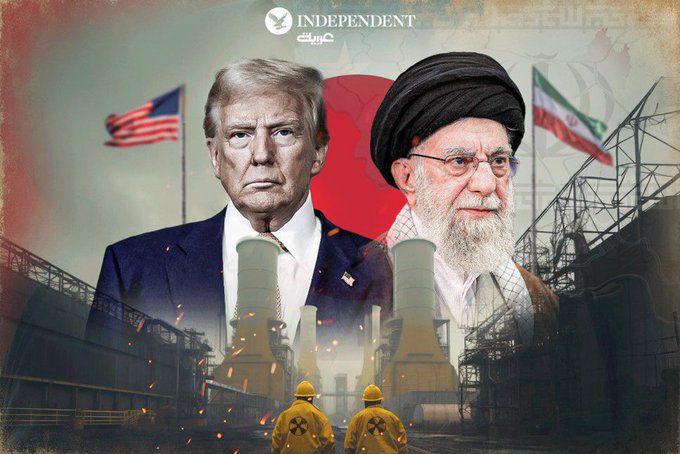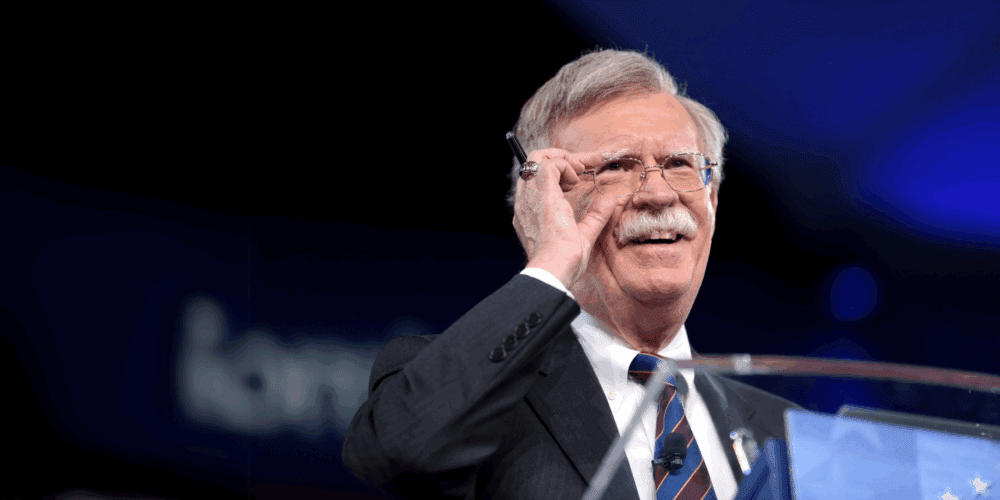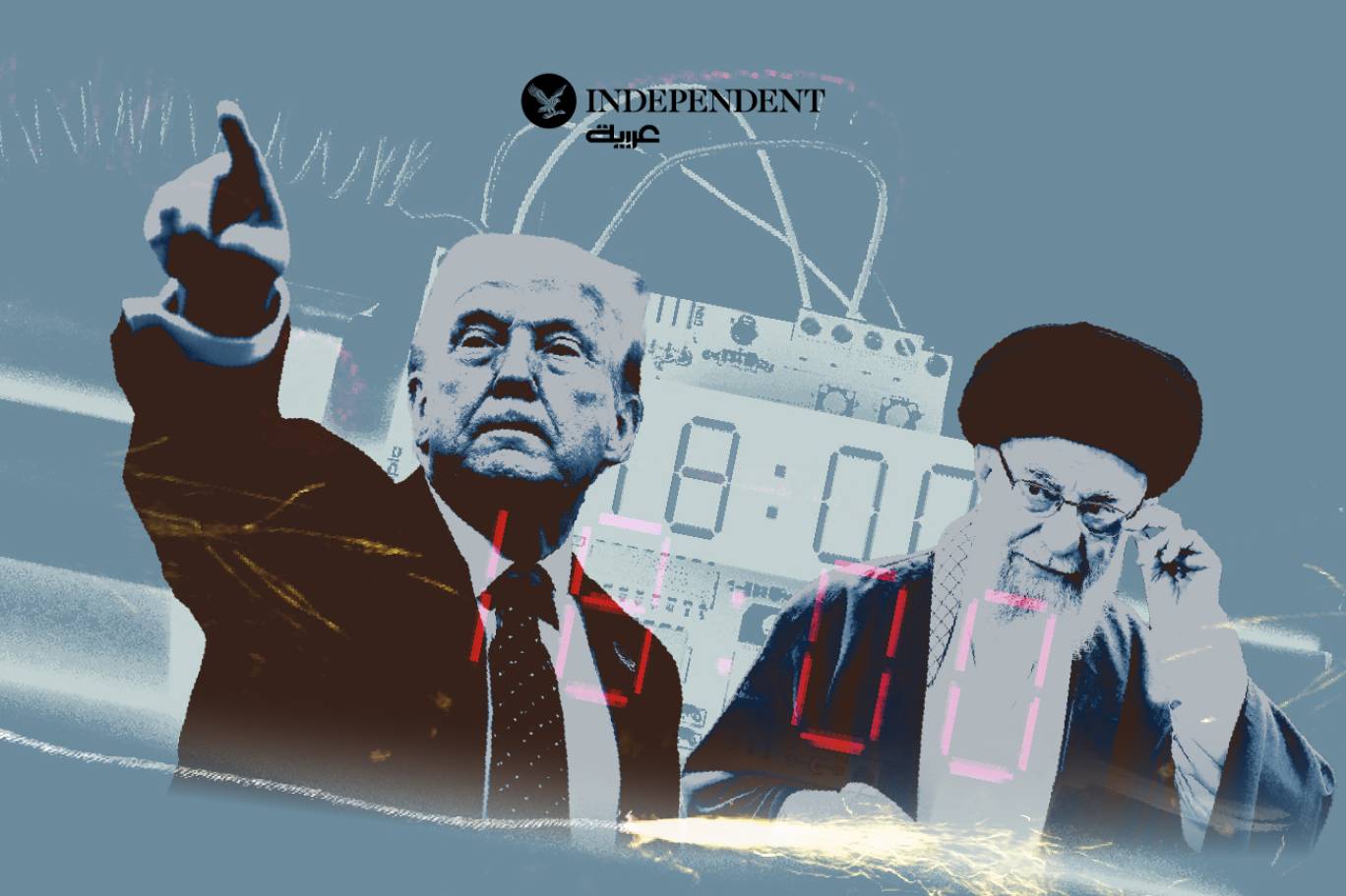Removing the ayatollahs in Iran is the only route to securing longterm peace in Gaza
Israel is now grappling with possibly the last phases of eliminating the Hamas terrorist threat. Instead of support from a unified West determined to extirpate terrorism, however, Jerusalem is under attack for attempting exactly that. Prime Minister Keir Starmer said he was “horrified” by Israel’s recent “escalation”. Foreign Secretary David Lammy condemned the “dark new phase in this conflict,” suspended trade negotiations with Israel, and said it should agree to a cease-fire to free remaining hostages, as if that were Jerusalem’s only legitimate objective.
Last week, a gunman in Washington brutally murdered two Israeli embassy employees, chanting “free, free Palestine” while being arrested. Thereafter, Prime Minister Benjamin Netanyahu said that Starmer and others were “on the wrong side” of justice, humanity and history. Starmer has not responded. Before he does, he should at least check the history.
Immediately after Hamas’s barbaric October 7, 2023, invasion, Netanyahu declared that Israel would seek Hamas’s political and military destruction. This was an entirely legitimate exercise of UN Charter Article 51, which affirms “the inherent right of individual or collective self-defense.”
Jerusalem was not limited to a “proportional” response, something comparable to the Hamas terrorist attack, any more than America was limited to a “proportional” response to Pearl Harbor. States are entitled not merely to repel threats, but to destroy them, as the allies did to Nazi Germany and Imperial Japan.
Moreover, clear from the outset and becoming clearer by the day as new information emerges, Hamas’s attack was part of Iran’s “ring of fire strategy” against Israel, a strategy implemented by the Quds Force of Iran’s Islamic Revolutionary Guard Corps. Just to remind, “Quds” is an Arabic term for Jerusalem, celebrated on Ramadan’s last day by Palestinians as “Quds Day.” Implementing its “ring” strategy, Tehran created or fostered a chain of terrorist groups: Houthis in Yemen, Hamas in Gaza, Hezbollah in Lebanon, and Shia militias in Iraq. Bashar al-Assad’s Syria was a key ally.
The anti-Israel strategy unfolded across the Middle East immediately after October 7. From the beginning, Israel saw Gaza as part of a wider war, not merely a discrete conflict. Now far more evident than at the outset, however, is the war’s economic dimension, a critical factor long before October 7.
Iran and other regional states, groups and individuals provided billions of dollars, directly and through international agencies like UNRWA, ostensibly for humanitarian aid. Tragically, however, as we now know, Hamas diverted much of these “humanitarian” resources to build Gaza’s underground fortress of tunnel networks; armed itself to the hilt (including with missile arsenals capable of menacing all Israel); and effectively mobilised most Gazans to serve as human shields for that fortress. If Hamas kept adequate records that can be recovered, the story will embarrass those who enabled this massive fraud, particularly in the West.
Meanwhile, Jerusalem is pursuing its post-October 7 goals, which must include eliminating all potential assets, in cash or in kind, Hamas can use to retain control over Gaza’s population. Working through UNRWA over decades, Hamas seized control over the distribution of virtually all humanitarian supplies entering Gaza. Credible reports (and Hamas records, if recovered) demonstrate how the terrorists rewarded their cadres at the expense of others, using control over the internal distribution of supplies in Gaza to cement their political control.
This pattern is nothing new. After the first Gulf War, Saddam Hussein used the UN’s “Oil for Food” programme to gain control over Iraq’s population. As originally conceived, an intrusive UN presence would use Iraq’s oil revenues for humanitarian aid to its people, thus ensuring the non-political delivery of assistance to the truly needy, while also demonstrating to Iraqis that Saddam had effectively lost control of his country. He repeatedly rejected this model, until the Clinton administration conceded that his regime would disburse Oil-for-Food aid. That mistake helped Saddam reinforce his authoritarian grip, repress Kurds and other dissidents, and again threaten his neighbours,
Hamas has thus simply been following Saddam’s plan. Israel, by contrast, has followed principles Herbert Hoover first articulated in World War I when he organised relief programs in Europe, starting in Belgium. Hoover ordered that no aid would go to combatants, and that his volunteers would distribute the aid, or at least rigorously monitor delivery to prevent diversion to combatants.
Hamas scorned Hoover’s principles, and continues to do so. Comments by Starmer, Lammy and others ignore both the reality in Gaza today and Hoover’s wise admonitions about ensuring that relief goes to those who actually need it, not those who use the aid to oppress them.
Israel has a plan to aid Gazans, backed by Washington but opposed by the UN. Instead of criticising Israel, Starmer should support and help perfect Jerusalem’s plan and thereby properly deliver humanitarian assistance.
The only way Gazans can ever be free is to eliminate the curse of Hamas. And because Gaza is part of Iran’s larger war against Israel and the West, that will happen only when Iranians are free of the ayatollahs. That should be our common goal.
This article was first published in The Daily Telegraph on May 26, 2025. Click here to read the original article.



